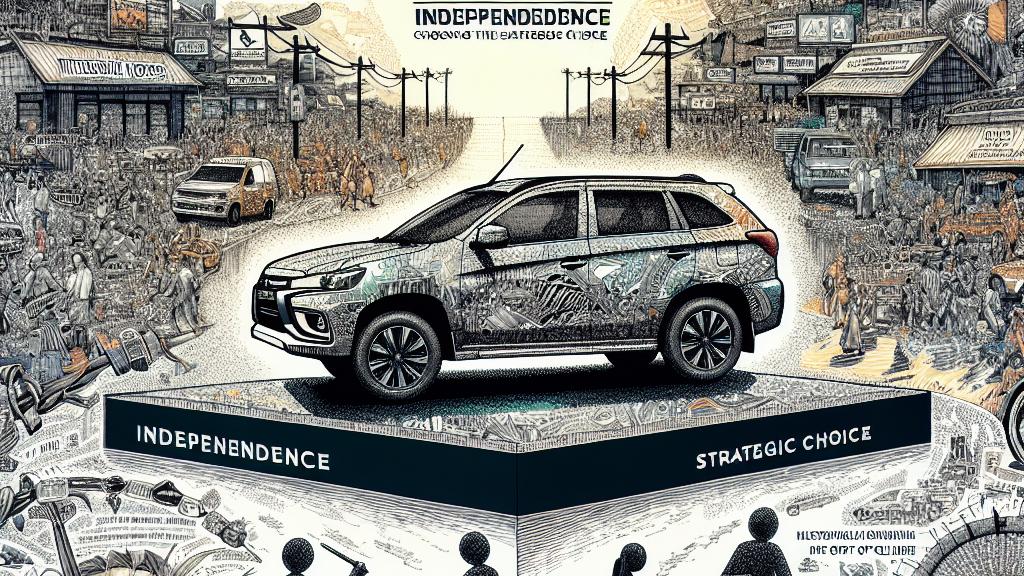Mitsubishi Focuses on Growing Market in Southeast Asia Instead of Merging with Honda and Nissan
Overview
- Mitsubishi Motors has confidently chosen independence over merging with Honda and Nissan, showcasing its commitment to strategic growth.
- The company is set to capitalize on the thriving Southeast Asian automotive market, embracing its unique industry identity.
- This decision facilitates quick and agile operations, allowing Mitsubishi to adapt to changing consumer demands efficiently.

Mitsubishi's Bold Decision
In a significant departure from the typical trends in the Japanese automotive industry, Mitsubishi Motors has announced its rejection of a merger with major players Honda and Nissan. While both companies were excitedly discussing the benefits of forming a joint holding company, Mitsubishi took a step back to reevaluate its strategy. By choosing to maintain its independent status, Mitsubishi can focus more directly on its strong presence in the Southeast Asian market. It's akin to a skilled artist who decides to forge their path rather than blend into a collective—Mitsubishi is committed to showcasing its unique strengths.
Opportunities in Southeast Asia
Southeast Asia represents a remarkable opportunity, flourishing with potential for automotive growth. Mitsubishi has established itself as a household name in countries like Thailand and Indonesia, where its vehicles are not just cars; they are symbols of reliability and modernity. For example, the Mitsubishi Xpander, known for its spacious interior and fuel efficiency, resonates well with families seeking practicality. This deep-rooted connection to local needs sets Mitsubishi apart, like a local athlete excelling in their sport by knowing the preferences of their community. Such recognition serves as a soil where enthusiasm can surge, enabling Mitsubishi to explore innovative designs that cater directly to regional tastes.
Avoiding the Challenges of Integration
Mitsubishi's decision is not just strategic; it reflects an acute awareness of the challenges posed by potential integration. With a market capitalization hovering around 700 billion yen, considerably smaller than Honda and Nissan, there are genuine concerns about the possibility of losing its distinctive voice within a massive conglomerate. Think of a talented student in a large school who fears their achievements might fade into the background—they wish to shine brightly and maintain their individuality. By remaining independent, Mitsubishi can swiftly respond to market dynamics, making critical business decisions that keep their brand vibrant.
Future Collaborations on Their Own Terms
Looking ahead, Mitsubishi's choice to forgo a merger doesn't mean they're shutting out potential collaborations with Honda and Nissan. Instead, it paves the way for partnerships that respect their unique identities. Historically, these companies have cooperated in critical areas like technology sharing, especially in the fast-evolving domains of electric vehicles and autonomous driving. Imagine chefs collaborating to create a spectacular dish while preserving their signature flavors—that's how effective partnerships can function. Mitsubishi can participate in initiatives like developing next-generation electric and hybrid vehicles, benefiting from technology synergies without losing its core values. This approach opens doors to creativity and innovation while highlighting each company’s strengths.

Loading...